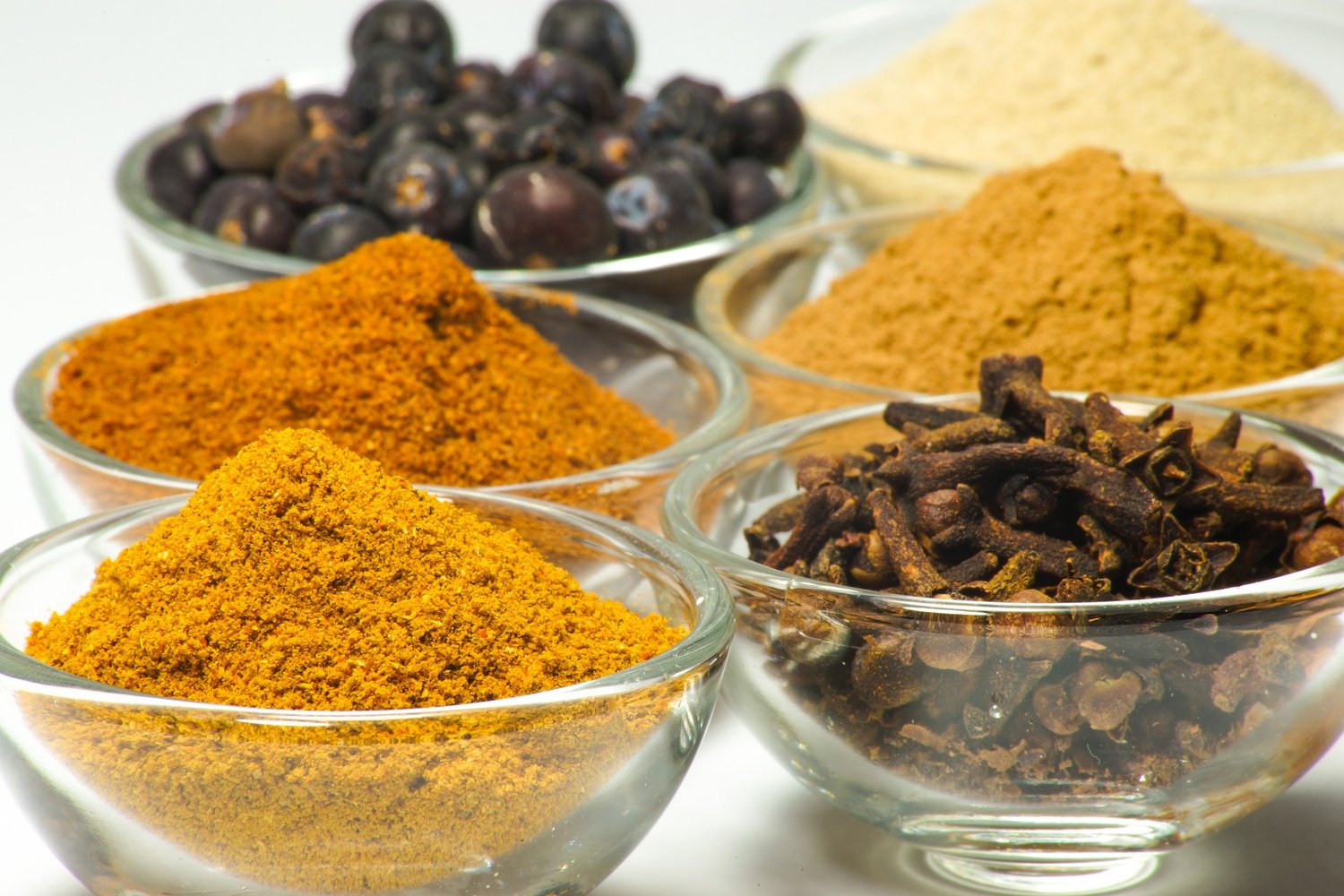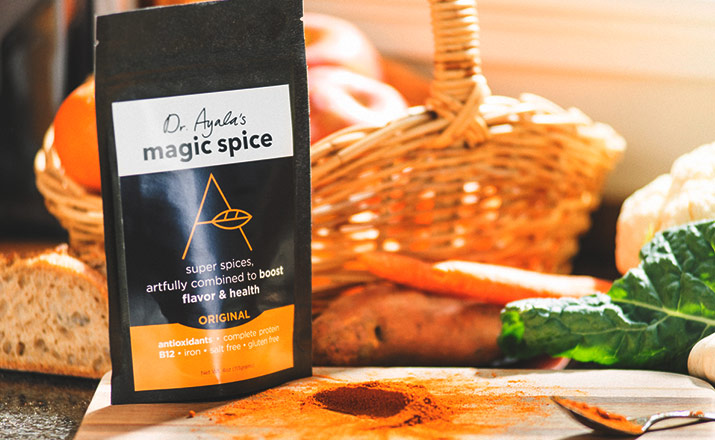
Fighting Inflammation with Spices

You can affect inflammation not just with powerful drugs but also with our fork! Pay special attention to turmeric and other super-spices – they are especially potent anti-inflammatory agents.
Anti-inflammatory foods – and super-star turmeric in particular– are promoted for general health and disease prevention.
Chronic inflammation, we’ve come to understand, is a threat. While inflammation is the body’s useful reaction to injury and infection by outside invaders such as bacteria and viruses, low grade chronic inflammation -- an immune system that’s a bit overactive at all times -- is detrimental to our health and leads to serious trouble: from heart disease to cancer, depression, Alzheimer’s and arthritis, not to mention the role it plays in aging. Reduce undue inflammation and you’ll reduce the risk of these diseases.
And we can affect inflammation not just with powerful drugs but also with our fork!
In the past two decades, thousands of scientific articles have been dedicated to turmeric’s molecular activity alone, and hundreds of research trials focus on just this specific plant’s activity in specific diseases.
What’s in our plate affects disease and health, so let’s take a look at which foods have that power, and at the latest science looking at the food-inflammation-disease connection.
The diet for controlling inflammation
To paint with a broad brush and help you remember, think of a stereotypical American diet – low on fruits and veggies, high on meat, refined grain, highly processed foods, desserts, and sugary drinks – and you’ve described the pro-inflammatory diet. Add to that obesity and sitting on a chair most of the day, and you’re imagining the perfect conditions for a pro-inflammatory state that predisposes our bodies to degenerative diseases.
To paint with another broad brush, an anti-inflammatory diet would be a classic Mediterranean diet – centered on fruits, veggies, spices and herbs, whole grains, garlic, onion, olive oil, fish and wine.
To be more specific, the tool used in most research into pro- and anti-inflammatory foods is the Dietary Inflammatory Index. To create the index thousands of scientific articles were reviewed, and each food and nutrient got a score.
Foods and nutrients that have strong anti-inflammatory activity include turmeric, fiber, tea, wine, ginger, all these wonderful phytochemicals in plant-foods – flavones, flavonols, flavanones, anthocyanidins, isoflavones – vitamins such A, E, D, C, and many from the B family, magnesium, mono and polyunsaturated fats, and omega-3 fats.
Per weight, spices, and herbs top all charts of antioxidant and anti-inflammatory activity.
Foods and nutrients with pro-inflammatory activity include total fat, saturated fat, protein, carbs, and iron.
Do anti-inflammatory foods reduce disease?
A growing body of research certainly suggests so.
A pro-inflammatory diet was associated with higher hypertension incidence in the 7000 women followed in a recent study. It was also associated with higher risk of colorectal cancer in another study that followed about 35,000 women.
Another study in the International Journal of Cardiology found that an anti-inflammatory diet lowered the incidence of heart disease in 3000 Greek volunteers followed for 10 years – at least for those of them that didn’t already have metabolic syndrome.
A new, large prospective study published in the Journal of Nutrition found that an anti-inflammatory diet lowered the risk of depression, especially in men.
Add to that the vast evidence linking Mediterranean diets with better health outcomes, and, at least for me, it’s reason enough to pay attention to anti-inflammation foods – it’s an intriguing topic I’m sure we’ll hear more about.
The take-home message: try to limit the pro-inflammatory foods – refined carbs, fried foods, soda, red and processed meat, margarine and lard – and try to include more foods that fight inflammation, such as fruits, veggies, spices, herbs, nuts, and fatty fish.
If you are interested in using anti-inflammatory ingredients in your life, please try my Magic Spices!
Dr. Ayala
In Same Category
- Diet affects vulnerability to Covid-19
- To Fight Inflammation Try Your Spice Rack
- Make Vegetables Sexy
- It Isn’t Meat, but Is It Delivering on Plant-Based?
- Activating Brown Fat – and Your Metabolism – with Turmeric, Coffee and Other Goodies
- Here's Why You Need to Cook More
- Top Healthy Food Trends for 2019
- An Easy, Proven Trick for Eating Healthier
- 12 Delicious Cooking Tips That Will Set You Free From The Salt Trap
- Smart Eating for a Successful School Year
- Fitness, Mindfulness and Healthy Eating – There’s an App for That
- Sustainable Summer: Greening your BBQ
- How to Eat Healthy in College and Avoid Weight Gain on Cafeteria Food
- Want Kids to Eat More Veggies? Season Them Up!
- All You Ever Wanted to Know About Nutritional Yeast and Its Health Benefits
- Falling in Love with Kickstarter
- Fighting Inflammation with Spices
- 3 Things Plant-Based Eaters Should Watch For
- Turmeric Absorption and Tips to Enhance Its Activity
- BEFORE & AFTER: Roasted Sweet Potatoes
- BEFORE & AFTER: Baked Potato Wedges
- BEFORE & AFTER: Roasted Cauliflower
Related by Tags
- To Fight Inflammation Try Your Spice Rack
- Top Healthy Food Trends for 2019
- Smart Eating for a Successful School Year
- Sustainable Summer: Greening your BBQ
- Want Kids to Eat More Veggies? Season Them Up!
- All You Ever Wanted to Know About Nutritional Yeast and Its Health Benefits
- Fighting Inflammation with Spices
- 3 Things Plant-Based Eaters Should Watch For
- Turmeric Absorption and Tips to Enhance Its Activity
